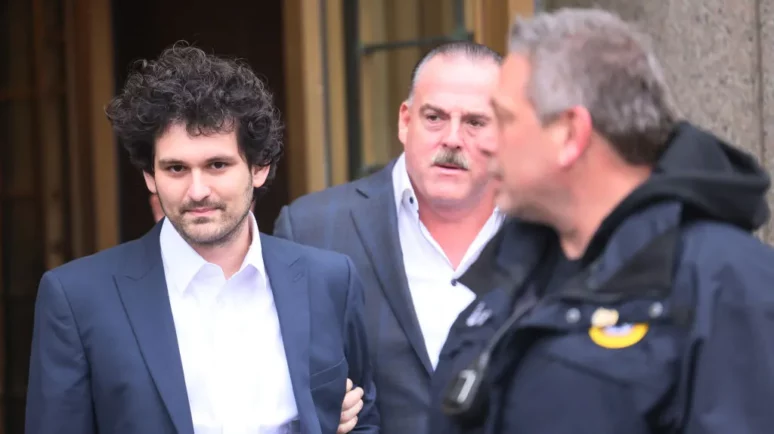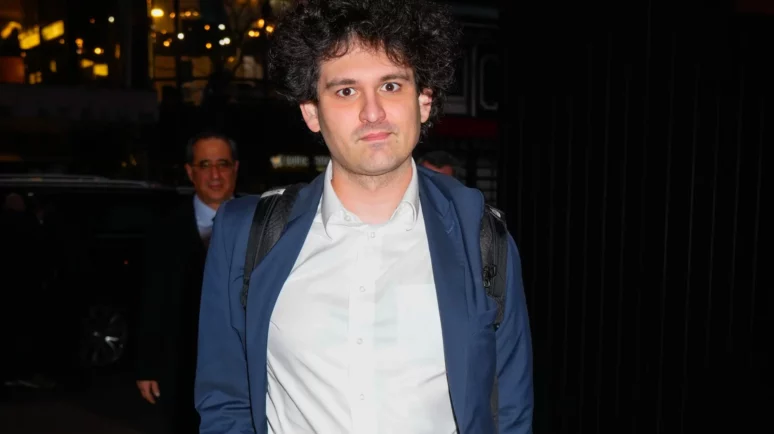Sam Bankman-Fried Sentencing – Everything You Need to Know Ahead of Judge Decision

Sam Bankman-Fried faces a sentencing hearing. | Credit: Michael M. Santiago/Getty Images
Key Takeaways
- Sam Bankman-Fried faces a sentencing hearing for orchestrating a massive cryptocurrency exchange fraud.
- Prosecutors want a harsh sentence, portraying Bankman-Fried as a greedy gambler.
- The defense argues for a much lighter sentence, claiming Bankman-Fried is a non-violent first-time offender.
Following his conviction for orchestrating one of crypto’s biggest frauds, a New York Court will sentence Sam Bankman-Fried on March 28.
Judge Lewis Kaplan’s final decision could send the former FTX exchange boss to prison for up to 50 years.
Judge to Decide SBF’s Fate Between Extremes
While Bankman-Fried’s appeal is underway, his imprisonment is pretty much certain. However, the length of his sentence rests solely with Judge Kaplan of the Southern District of New York.
Prosecutors are advocating for a sentence between 40 and 50 years for Bankman-Fried, who celebrated his 32nd birthday this month. In contrast, his defense attorneys have criticized such a lengthy sentence as akin to a “medieval…death-in-prison sentencing recommendation”. They argued that a term no longer than six and a half years would be more fitting for a non-violent, first-time offender.
Judge Kaplan will consider these arguments, alongside the Probation Department’s recommendation, which suggests a century-long sentence—a proposal even prosecutors thought was excessively severe. Kaplan’s decision will also take into account a variety of other factors. These include Bankman-Fried’s youth and the judge’s assessment of the likelihood of Bankman-Fried reoffending.
According to Howard Fischer, a partner at law firm Moses Singer in New York:
“There’s this pretense that sentencing is done in this quasi-scientific fashion. The fact is, there is an enormous amount of latitude that the sentencing guidelines allow a court to exercise.”
Prosecutors Brand SBF a Greedy Gambler, Defense Cries Foul
In the courtroom, the boundaries of discussion before a jury are tightly controlled. However, sentencing hearings have more flexibility, allowing both prosecution and defense extensive leeway to present broad arguments to influence the judge’s decision.
Recently, prosecutors submitted a detailed 116-page sentencing memorandum. In it, they said Bankman-Fried’s sentence should match the “extraordinary dimensions of his crimes.” They also challenged the defense’s portrayal of Bankman-Fried as a philanthropist.
Prosecutors wrote in the memo :
“With all the advantages conferred by a comfortable upbringing, an MIT education, a prestigious start to his career in finance, and a worthy idea for a startup business, Bankman-Fried could have pursued the … altruistic life he has sketched out in his sentencing submission. But instead, his life in recent years has been one of unmatched greed and hubris; of ambition and rationalization; and courting risk and gambling repeatedly with other people’s money.”
In a letter addressed to the court, Marc Mukasey, the attorney representing Bankman-Fried during his sentencing, labeled the government’s memorandum as troubling and claimed that the government’s aim was to “break” Bankman-Fried.
Mukasey pointed out the lack of precedent for a non-violent federal offender serving a 40 to 50 year sentence and then being released. He went on to cite the detrimental impact of incarceration on life expectancy, where each year in prison may reduce an inmate’s lifespan by two years. He argued that Bankman-Fried did not deserve such a severe punishment.
Bankman-Fried’s Pre-Trial Behavior Could Lengthen Sentence
In cases involving financial crimes, defense attorneys often counsel their clients early on to improve their public persona by engaging in community service, attending religious services, or participating in charitable activities. These actions could, potentially, cast them in a more favorable light during legal proceedings.
However, these avenues were not available to Bankman-Fried, who, after being placed under house arrest in December 2022, was restricted to his parents’ home in Palo Alto, California. Despite these limitations, Bankman-Fried pushed the boundaries of his bail conditions in the period leading up to his trial. For instance, he made public statements to the media and divulged private writings belonging to his former colleague and ex-girlfriend, Caroline Ellison.
In August 2023, Judge Kaplan agreed with the prosecution’s argument and revoked Bankman-Fried’s bail. This resulted in his incarceration at the Metropolitan Detention Center in Brooklyn.
This behavior could adversely affect Bankman-Fried during his sentencing, according to Fischer. Fischer highlighted that Bankman-Fried’s actions prior to the trial, particularly his apparent disregard for the protocols of the criminal justice system, were particularly damaging.
In another twist, Ellison and several other former executives turned against Bankman-Fried, testifying in exchange for guilty pleas to charges similar to those faced by Bankman-Fried and in cooperation with the prosecution. Their sentencing should follow Bankman-Fried’s.
Did Lost Billions Fly Back?
A key point in the case against Sam Bankman-Fried revolves around determining the financial losses suffered by customers of the now-defunct cryptocurrency exchange FTX. Its assets froze during its sudden collapse in November 2022.
In financial crimes, the magnitude of the loss often influences the severity of the sentence. For instance, Bernie Madoff received a 150-year sentence in 2009 for orchestrating a $20 billion Ponzi scheme.
Prosecutors in the disgraced former billionaire’s trial conservatively estimate the total losses from the FTX fraud to exceed $10 billion. This includes customer funds, investor losses in FTX, and debts from its affiliated trade house, Alameda Research. Despite FTX’s downfall, the rise in the value of its cryptocurrency holdings means a large number of customers could fully recover their investments. The defense argues this potential for restitution supports the case for a reduced sentence. It also claims that all victims mentioned by the prosecution are on track to receive full compensation plus interest.
However, legal experts caution that full restitution may not significantly mitigate Bankman-Fried’s potential sentence. They liken the scenario to an individual attempting to excuse theft because it inadvertently led to no financial harm due to fortuitous gains elsewhere.
John Ray, who became FTX’s CEO post-collapse, contested the defense’s claim of no financial harm He emphasized any potential recovery of funds was uncertain and would not have been possible without the efforts of his team to salvage the remnants of Bankman-Fried’s “sprawling criminal enterprise”. He also reiterated that FTX, as left by Bankman-Fried, was far from solvent or secure.


